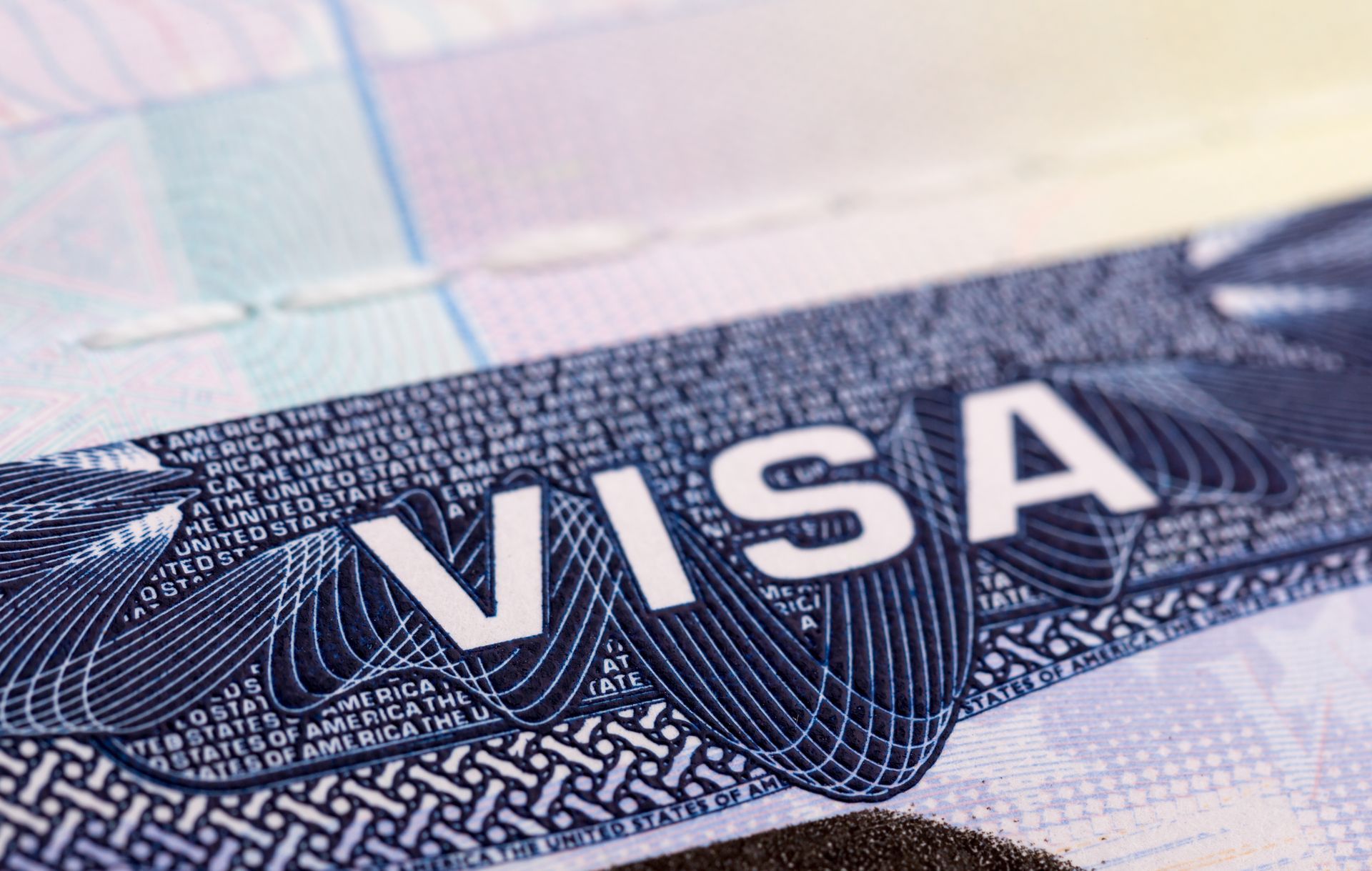RECENT ARTICLES
LEGAL SERVICES
By: Jennifer Fabian-Verzosa, Esq.
THE GREEN CARD INTERVIEW IS A PIVOTAL STEP ON YOUR JOURNEY TO BECOME A LAWFUL PERMANENT RESIDENT OF THE UNITED STATES. UNDERSTANDING THE PROCESS AND BEING WELL-PREPARED CAN HELP EASE YOUR ANXIETY AND CONTRIBUTE TO A SUCCESSFUL OUTCOME.

The primary goal of the green card interview, conducted by a U.S. Citizenship and Immigration Services (USCIS) officer, is to verify the information provided in your application, confirm your eligibility for permanent residency, and ensure that you meet all legal requirements. It's an opportunity for the officer to clarify any inconsistencies or questions that may arise from your application and supporting documents.
Who Can Attend your Adjustment of Status Interview?
The green card applicant must attend the interview. If you are applying based on a family relationship, the petitioning relative (e.g., your U.S. citizen spouse, parent, or child) is often required to attend with you, especially for marriage-based applications. For employment-based green cards, typically only the applicant needs to be present. An attorney can accompany you to the interview. If needed, you may bring an interpreter (who is a neutral party and not your petitioner).
Where will the interview be?
Your interview will at a local USCIS field office near where you physically reside.
What Should You Bring?
Being organized and bringing all necessary documents is important, so that a decision can be reached at the interview. If you are missing an important document, this could cause further delay to your case or result in a denial.
Your appointment notice will detail the required documents, so read it carefully.
Generally, you should bring:
- Your interview appointment notice.
- Government-issued photo identification (passport, driver’s license, etc.).
- Originals of all supporting documents you submitted with your application (birth certificates, marriage certificates, divorce decrees, etc.).
- Any updated documents or information since you filed your application (e.g., new address, new job, new child).
- For marriage-based applications, evidence of your bona fide marriage (joint bank statements, utility bills, photos together, etc.).
Adjustment of Status Interview process:
The interview process typically involves:
- Check-in and Security: Arrive early to allow time for security screening and check-in.
- Being Called: You will be called by name by a USCIS officer.
- Oath: You will be asked to take an oath, swearing to tell the truth.
- Verification of Identity and Application Review: The officer will verify your identity and go through your application forms. The officer will ask you about the information you provided to confirm its accuracy.
- Questions About Your Eligibility: The questions will focus on your specific case and the basis for your green card application.
- For family-based applications, especially marriage-based: Expect detailed questions about your relationship, how you met, your daily lives together, shared responsibilities, significant dates, and future plans. The goal is to determine if your marriage is genuine. You and your spouse may be interviewed together or separately.
- For employment-based applications: Questions will likely revolve around your job offer, your qualifications, the petitioning employer, and your role at the company.
- General Questions: You may also be asked about your immigration history, travel in and out of the U.S., education, employment history, and any potential grounds of inadmissibility. Be prepared to answer questions about your background, including any interactions with law enforcement or immigration authorities.
6. Review of Documents: The officer may ask to see original supporting documents.
7.
Opportunity to Provide Additional Information: You will have a chance to provide any updates or additional information relevant to your case.

Tips for a Successful Adjustment of Status Interview:
- Review Your Application: Familiarize yourself with every detail of your submitted application and supporting documents.
- Be Truthful and Consistent: Answer all questions honestly and consistently with your application.
- Understand the Questions: Listen carefully to each question before answering. If you do not understand a question, politely ask for clarification.
- Be Clear and Concise: Provide direct and brief answers to the questions asked. Avoid volunteering unnecessary information.
- Stay Calm and Polite: Remain calm, respectful, and polite throughout the interview.
- Dress Appropriately: While there is no strict dress code, dressing in business casual attire is recommended.
- Practice: Practice answering potential questions with a friend or family member, especially for marriage-based interviews.
What Happens After my Adjustment of Status Interview?
At the end of the interview, the officer will typically inform you of the next steps. They may:
- Approve your application on the spot.
- Indicate that your case requires further review.
- Issue a Request for Evidence (RFE) if they need additional documentation.
- Issue a Notice of Intent to Deny (NOID) if they believe you are ineligible, providing you with an opportunity to respond.
- Deny your application.
If your application is approved, you will typically receive your green card in the mail within a few weeks or months.
The green card interview is the final step in your immigration process. Under this current presidential administration, it is less likely to be waived. By understanding what to expect and preparing thoroughly, you can increase the likelihood of a positive outcome.
Our EXPERIENCED IMMIGRATION LAW OFFICE has guided many applicants successfully through the adjustment of status process. From day one, we provide client-centered representation to help our clients feel well-supported throughout the entire process. It starts with building a thorough and properly supported application! Contact us today for dedicated immigration help for your case: contact@law-jf.com or +1(619) 431-2407. We offer in-person and remote legal services, wherever you are in the United States. You can also learn more about our legal services here.







